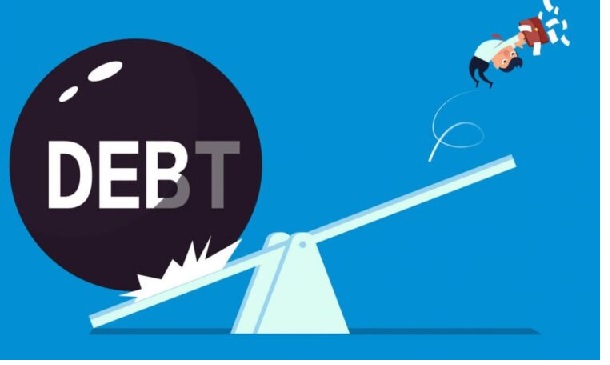When a nation’s realised revenue is not sufficient to foot projected expenditures, the government usually resorts to borrowing. In the case of Nigeria where budget deficits are usually recorded, the spate of public debt has been alarming. In this article, we’ll be discussing the importance and impact of public debt in Nigeria. Read on to find out the varying relationship between government borrowing and the economy of Nigeria.

The importance and impact of public debt in Nigeria would be discussed below:
-
A Brief Overview of Public Debt in Nigeria
As a country whose major source of internally generated revenue is based on the exploration and sale of crude oil, there have been years in the recent past when the nation has recorded a budget deficit. As a result, the government would need to source alternative means to fund the development of the country.
The government of Nigeria, whether it be at the federal, state, or local level, usually adopts public borrowing as a finance approach when generated revenue is insufficient for projected expenditures. Although other options like selling national assets and creating money exist, public debt is considered more favourable.
The two major ways the Nigerian government borrows to fund projected expenditures are internal borrowing and external borrowing. In internal (or domestic) borrowing, public debt is generated from private organizations and public entities that are in Nigeria. Domestic debt may also be sourced from future pension payments, government liabilities or goods and services by the government on credit.
External borrowing, the other form of government borrowing in Nigeria (and other countries), would require the government to reach out to foreign governments or financial institutions abroad to source funds. This type of borrowing is typically characterized by stringent lending conditions and the volatility of foreign exchange rates.
-
The Importance of Public Debt in Nigeria
As we’ve stated severally in this article, public debt is important to fund government expenditures when the revenue realised by the nation is not enough to do so. When the borrowed funds are invested into human capital development, delivering adequate infrastructure, and expanding the scope of private investment in the country, the nation’s productivity and economy would improve.
We should point out that only through effective management of contracted public debt can the stability and growth of any economy can be achieved. More so, it is through the judicious utilization of the borrowed funds by the government that the debt can be repaid. Now we’ve evaluated the potential public debt has in increasing the economic growth and development of Nigeria, let’s go ahead to discuss the impact of public debt in Nigeria.
-
The Impact of Public Debt in Nigeria
There is no doubt public debt can increase the productivity level and enhance the economy of a country if judiciously utilized. In this section of this article, we’d be discussing the impact of public debt in Nigeria. To get a better understanding of the impact of government borrowing in Nigeria, we’d explore the varying relationship between public debt and the economic growth of Nigeria. To present you with factual information on the subject, we consulted several published academic studies on the subject.
We’d be discussing how foreign debt and domestic debt impact the Nigerian economy. A 2016 study conducted by Bakare, Ogunlana, Adeyeye and Mudasiru analysed the effects of domestic debt on the Nigerian economy based on cognate publications of Nigeria’s tax profile from 1980 to 2012. Adopting the quantitative reasoning method in this study, the findings suggested that there exists a positive relationship between domestic debt and economic growth.
A 2016 study conducted by Oyedele, David and Omojola assessed the effect of public debt on economic growth in Nigeria and gathered that there existed a positive but non-existent relationship between per capita domestic public debt and economic growth. The study also included findings that a negative and not significant relationship existed between per capita external debt and economic growth. To make these findings, this group consulted Nigeria’s tax profile from 1970 to 2011.
A 2017 study assessed public debt and economic growth in Nigeria, particularly the extent to which foreign debt impacts national output in Nigeria. After the team had consulted 45 years (1970 – 2015) worth of data amassed from the Central Bank of Nigeria’s archives, the study gathered that external debt had a significant negative influence on the economic growth of Nigeria within the period under study.
To understand the effect of public debt on the economic growth of Nigeria, a 2018 study revealed that internal debt exerted a positive impact on the economy while with external debt, the reverse was the case. Another 2018 study by Rafindadi and Musa sought to analyse the impact of public debt development strategies on Nigeria’s debt profile. The findings from this study suggested, based on compelling evidence, that debt refinancing hurts the total debt profile in Nigeria.
From the numerous sources we consulted to present these claims stated above, we’ve been able to establish the relationship of public debt with the economic growth of Nigeria. While several studies suggest that domestic debt has a positive relationship with the economic growth of Nigeria, external debt negatively impacts the economic growth of the country. To this end, internal borrowing impacts the economy of Nigeria more than external debt.
A major reason why public debt seems not to generally improve the economy of Nigeria is poor debt management strategies. Lots of evidence abound whereby the government fails to judiciously utilize the contracted debt and repay the loan in due time. For public debt to work as it should in Nigeria, the government should ensure every loan borrowed is employed towards projects that would ultimately increase productivity and economic growth. The government would want to set up upright monitoring committees that would see national debts being directed towards providing adequate infrastructural facilities and services which would develop the communities and societies of the nation. This would invariably increase productivity levels and enhance the economy.